Despite the fact that melon has been known for several millennia, modern breeders still continue to work on breeding new varieties. One striking example is a strawberry-flavored melon, which was bred in the North Caucasus region. You can talk about the benefits and harms of melon for hours, it has a rich vitamin composition, but in some situations it can negatively affect human health.
Material Content:
- 1 Composition, calorie content and nutritional value of melon
- 2 Useful properties for the body
- 3 What is useful melon for children
- 4 Melon during pregnancy and lactation
- 5 Indications for the use of fruits
- 6 The benefits of dried, dried melon
- 7 Melon selection and storage
- 8 Melon seeds
- 9 Contraindications and possible harm
Composition, calorie content and nutritional value of melon
Calorie melon is 35 kcal. The ratio of proteins * fats * carbohydrates is 0.6 * 0.3 * 7.4.
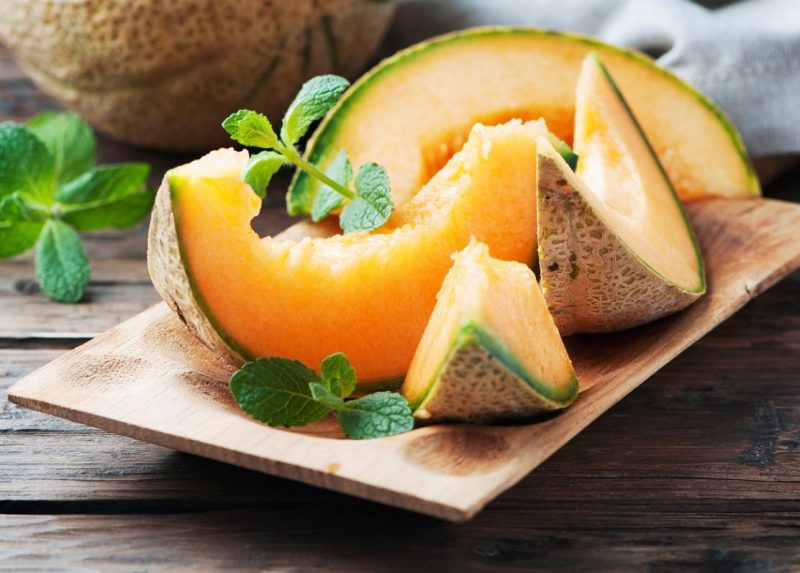
The composition of the melon includes the following components (in grams):
- water - 90;
- starch - 0.1;
- dietary fiber - 0.9;
- disaccharides and monosaccharides - 7.3;
- organic acids - 0.2;
- ash - 0.6;
- saturated and unsaturated fatty acids - 0.1 each.
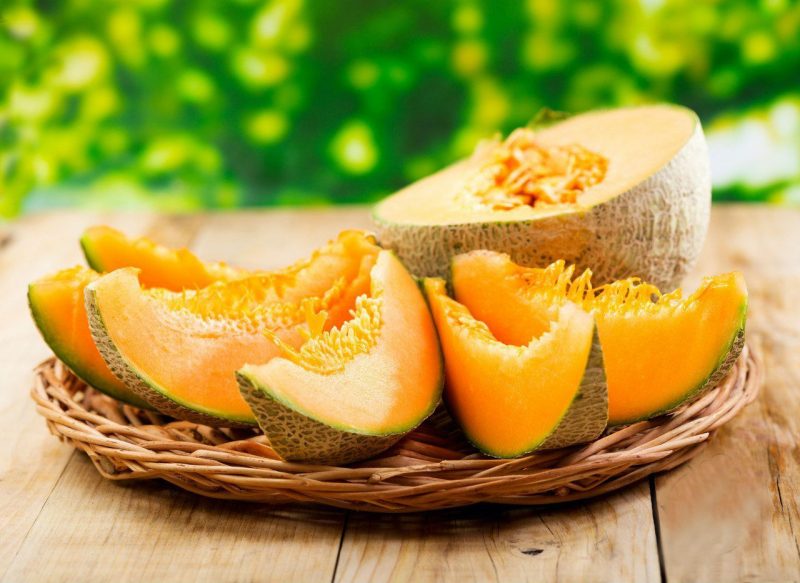
In addition, the composition contains macroelements - calcium, magnesium, sodium, potassium, phosphorus, chlorine, sulfur; vitamins - beta carotene, PP, A, B1, B2, B5, B6, B9, C, E; trace elements - iron, zinc, iodine, manganese, copper, cobalt, fluorine.
Due to the high sugar level, melon can be considered a source of energy. Even a small piece of a vegetable can cheer you up, as the amino acids that make up it can produce serotonin, a hormone of joy.
Useful properties for the body
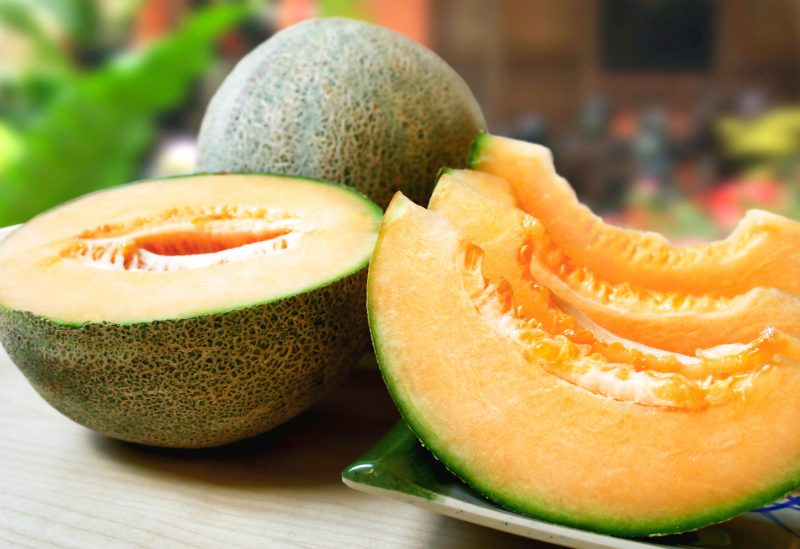
Having a rich vitamin composition, melon is able to positively affect the human body:
- A diuretic - potassium and vitamins normalize the functioning of the kidneys, as a result of which all excess fluid from the body is eliminated. Excellent prevention of puffiness.
- Lower cholesterol. Regular consumption of fruits will help prevent heart attack, stroke, atherosclerosis.
- Hematopoietic ability.Eating melon in combination with herbs can increase hemoglobin levels.
- Laxative - the vegetable contains a high level of fiber and organic acids.
- Improved vision due to the high content of carotene, zeaxin and lecithin. These components have a positive effect on eye health and serve as a preventive measure of hyperopia.
- Improving vascular elasticity. This is accompanied by a large amount of silicon. In combination with vitamin C, it helps prevent varicose veins.
- A vegetable can improve mood.
- Anthelmintic. It is worth paying tribute to the seeds of melon, but the pulp also has a beneficial effect.
What is useful melon for children
Despite the many beneficial properties of melon, it is necessary to introduce it into the child’s diet with extreme caution. For children of the first year, the vegetable is generally contraindicated, since even a small piece of it can lead to indigestion. Start with a small amount to avoid allergic reactions.
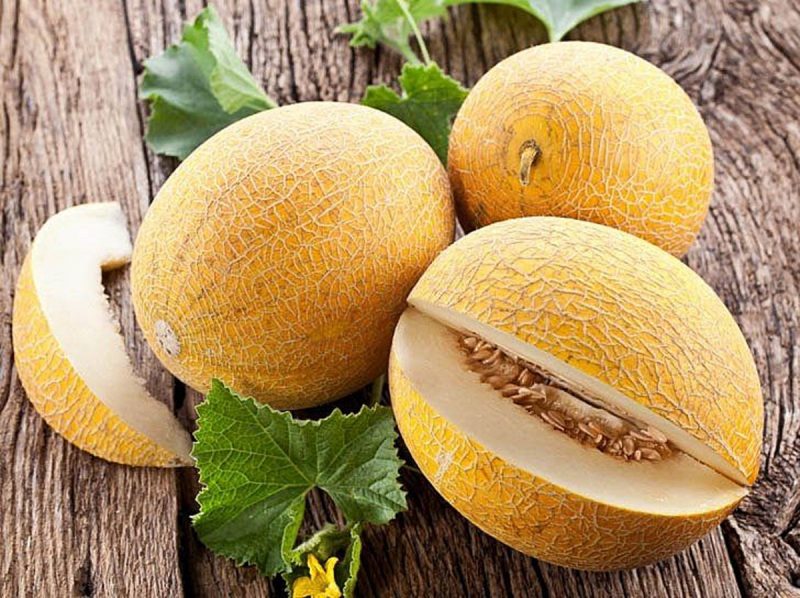
Melon culture helps strengthen immunity, increase hemoglobin, and is also a good prevention of constipation. In addition, she fights against parasites in the body, which is very important for children.
Feed your child melon only in the season, which begins in late July - early August. It is these fruits that are considered the most useful and safe for the child.
Melon during pregnancy and lactation
During the period of carrying the baby, the mums are simply necessary for mothers, so do not deny yourself the pleasure. The main thing is not to overeat and know the measure in everything.
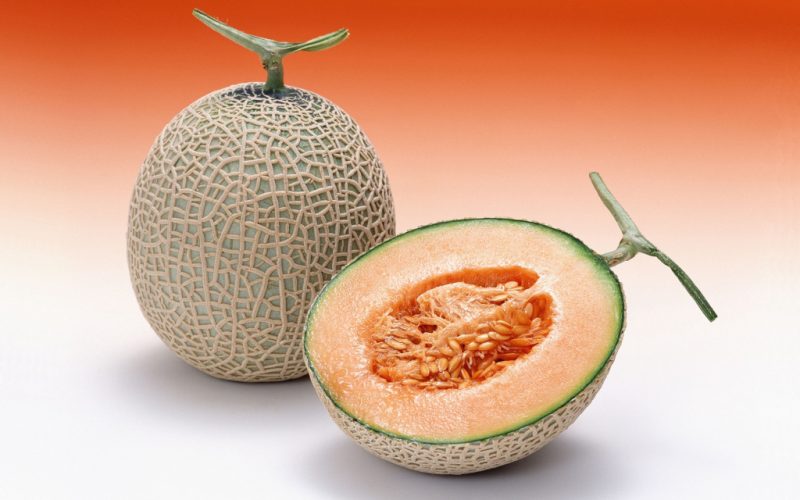
What is the use of melon for the future mother:
- high levels of vitamins can improve metabolism;
- melon produces the hormone of happiness, which during pregnancy is able to cheer up;
- functional characteristics of the nervous system improve, resistance to stressful situations increases;
- excellent prevention of hemorrhoids and constipation;
- the vegetable helps to eliminate excess fluid, due to which puffiness is reduced and the load on the kidneys is reduced;
- the future baby needs a large amount of vitamins, which he takes from the mother's body. The composition of the melon includes silicon, it helps to keep skin, hair and nails in good condition;
- melon contributes to natural weight loss, so the last gestation period will be a little easier.
Pregnant women are not recommended to eat a vegetable on an empty stomach, this can provoke an upset stomach. A day you can eat no more than 200-300 grams of the product. Be sure to eat only ripe melon, a green vegetable is contraindicated for pregnant women.
During lactation, it is better not to consume melon, as it can lead to problems with the stomach in a child.
Indications for the use of fruits
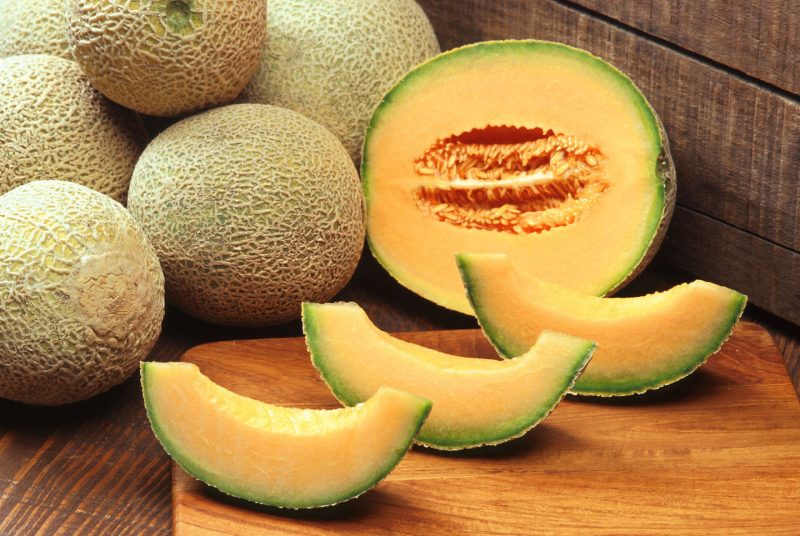
Melon and its juice must be consumed with the following indications:
- hypovitaminosis;
- constipation of a chronic nature;
- low hemoglobin;
- toxicosis during gestation;
- diseases of the circulatory system;
- atherosclerosis.
The benefits of dried, dried melon
The use of dried melon is almost the same as fresh. During heat treatment, all its beneficial properties are preserved, therefore it is advised to eat it in case of problems with the heart and blood vessels, jaundice or nervous disorders. The advantages of dried and dried melon is that you can use it at any time of the year and not worry that the product contains a high amount of nitrates. Moreover, you can take care of the harvesting yourself.

In dried melon, a large amount of folic acid, which is especially necessary during pregnancy. This component helps to fight depression, regulates the hormonal sphere, rejuvenates the body and strengthens the immune system.
Melon selection and storage
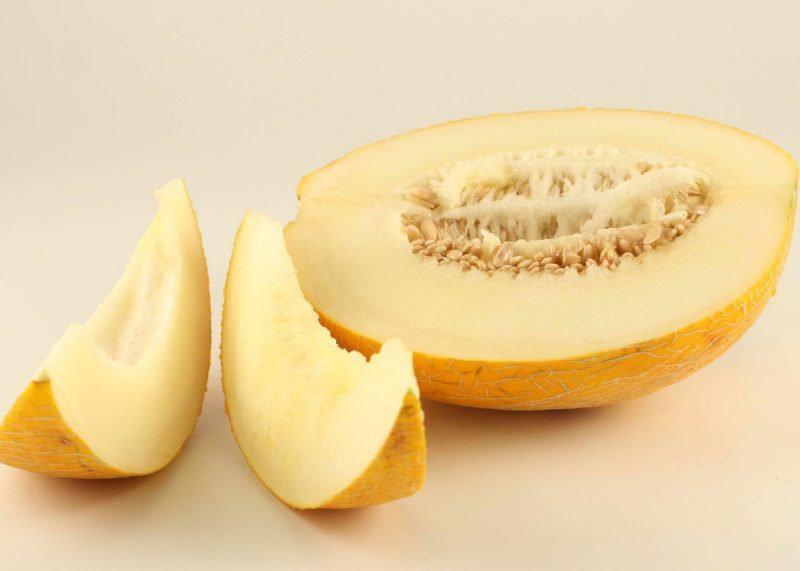
To choose a quality product, you need to pay attention to the following characteristics:
- Smell - a ripe fruit should delight with a sweet aroma.Choose a vegetable as far as possible from the carriageway and contaminated places.
- Carefully inspect the melon. If it has any mechanical damage or dark spots, then you should not take it. A ripe fruit should make a dull sound when tapped.
- Melon should have a uniform color. When ripe, the peel is slightly pressed through, but there should not be a pronounced trace of pressing. A solid fruit speaks of immaturity, too soft - that it is overripe.
- After you cut the fruit, you need to pay attention to the seeds. They should be full and easily move away from the pulp.
It is advisable to eat the cut melon during the day, and keep it in the refrigerator.
Melon seeds
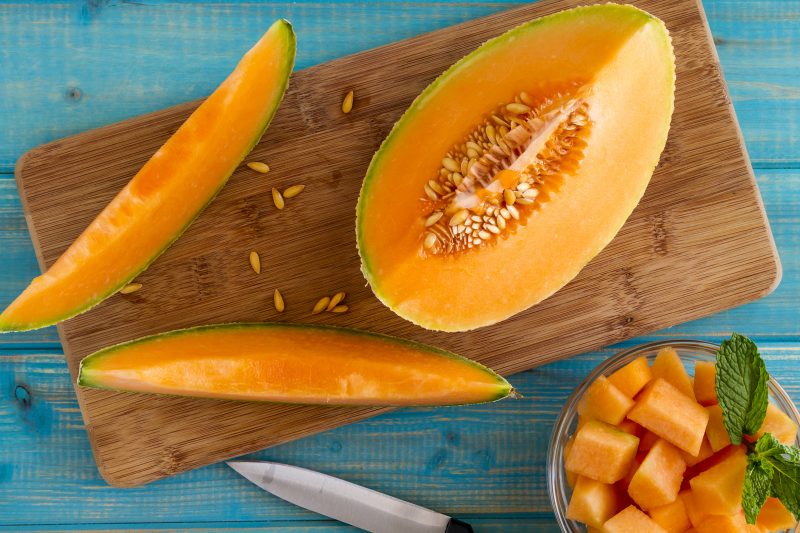
Based on the foregoing, it can be noted with confidence that the use of seeds is obvious.
- Their oil is able to positively affect the work of the intestines and liver.
- Relieve coughing attacks, have diuretic and choleretic properties.
- Indicated for men who have problems with the prostate gland, with prostatitis and impotence.
- Zinc, which is part of the composition, turns seeds into a powerful aphrodisiac.
- Excellent anthelmintic.
The seeds contain a large amount of fat, which increases the load on the spleen.
Contraindications and possible harm
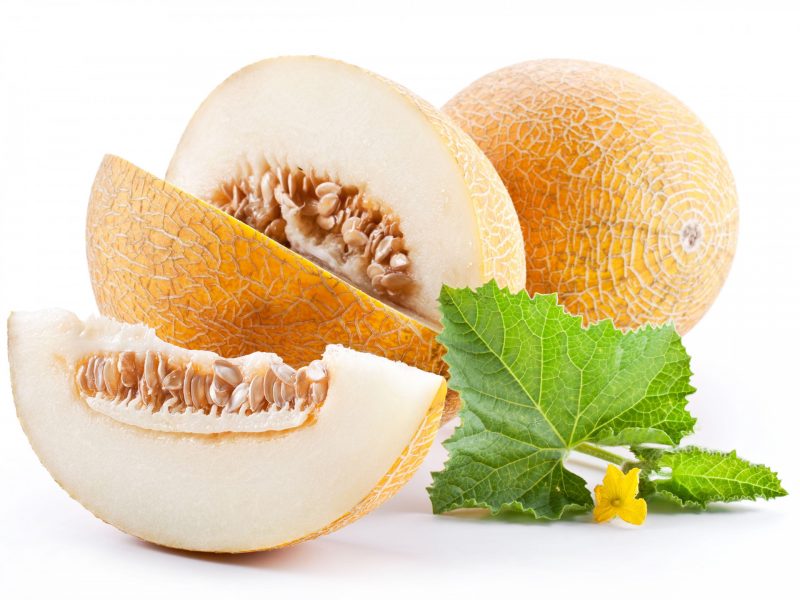
Cases when you should refuse a melon:
- diabetes - due to the fact that the vegetable contains a large amount of sugar;
- diseases of the gastrointestinal tract, especially ulcers, colitis, gastritis;
- lactation - the fetus can cause diarrhea in the baby;
- individual intolerance;
- urinary tract diseases.
Eating melon is in moderation. In no case do not combine it with milk products and do not drink with water. Also, the vegetable is not advised to eat on an empty stomach and combine with products that contain starch.












